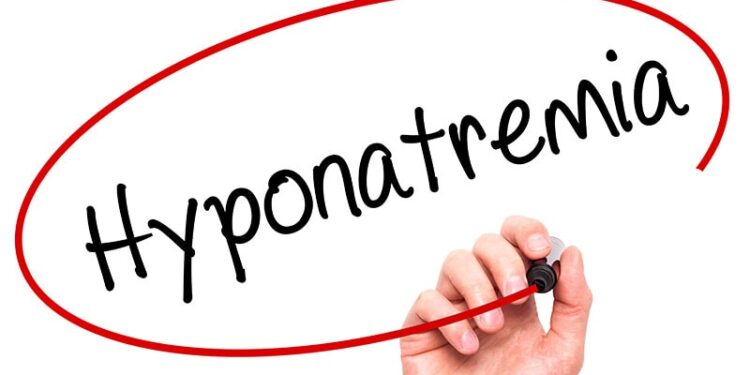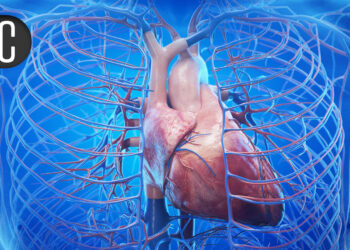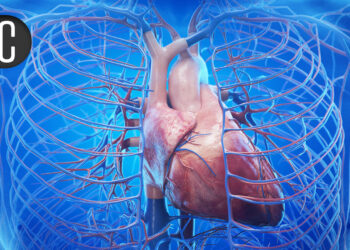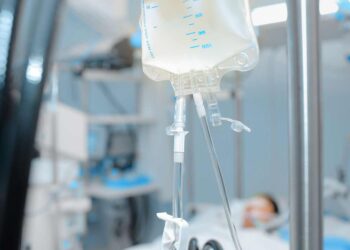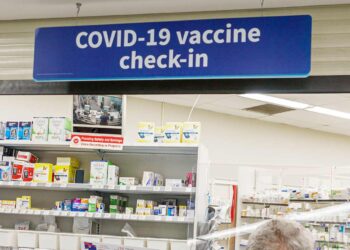TOPLINE:
Measuring copeptin levels in patients with hypotonic hyponatremia on emergency department (ED) admission provided key diagnostic insights. The copeptin to urinary sodium ratio more accurately predicted preserved extracellular fluid (ECF) than urinary sodium alone, and higher copeptin levels were linked to an increased risk for mortality.
METHODOLOGY:
- Hypotonic hyponatremia is frequently observed during hospitalization and can increase the risk for mortality; in this context, copeptin, the C-terminal portion of the arginine vasopressin precursor, has emerged as a valuable marker for predicting complications associated with hypotonic hyponatremia.
- Researchers reported findings from a prospective cohort study conducted between June 2018 and August 2019 at a hospital in Italy, evaluating the accuracy of copeptin in identifying preserved ECF patterns and its predictive value in critically ill patients admitted to the ED.
- They included 84 adult patients (median age, 79 years; 47 women), in whom hyponatremia was confirmed by both direct and indirect ion-selective electrode assays after glucose correction; severe hyponatremia was observed in 34.5% of patients.
- Information on vital signs, ultrasound, medical history, and comorbidities was recorded, and pretreatment blood and urine samples were collected for laboratory analyses.
- ECF status was reassessed after discharge by three independent endocrinologists; in-hospital mortality and 6-month mortality were also evaluated.
TAKEAWAY:
- Reduced ECF, increased ECF, and preserved ECF were reported in 28 patients each.
- A ratio of copeptin to urinary sodium of ≤ 29.5 pmol/mmol × 100 increased the likelihood of preserved ECF by more than fourfold (adjusted odds ratio, 4.28; P = .026), outperforming standard urinary sodium measurements (difference in area under the curve when the urinary sodium cut-off was > 30 mmol/L, 0.177; P = .013).
- Copeptin levels were positively associated with increased risks for in-hospital mortality (P < .0001) and 6-month mortality (P = .02), with levels above 13.6 pmol/L associated with a more than fourfold increased risk for 6-month mortality (hazard ratio, 4.507; P = .0001).
- Additional predictors of 6-month mortality included levels of N-terminal prohormone of brain natriuretic peptide (P = .031) and comorbidity burden (P = .009).
IN PRACTICE:
“It is important to note that our results do not suggest replacing copeptin with other established clinical and biochemical evaluations routinely performed in emergency care, such as s-K [serum potassium] or NT-proBNP [N-terminal prohormone of brain natriuretic peptide] levels, when clinically appropriate. Rather, the aim of adjusting copeptin’s predictive value for these common parameters in our analysis was to confirm its independent contribution,” the authors wrote.
SOURCE:
This study was led by Alessandro Maria Berton, Department of Medical Sciences, University of Turin, Turin, Italy. It was published online in The Journal of Clinical Endocrinology and Metabolism.
LIMITATIONS:
Patient recruitment was restricted to daytime hours and weekdays, thus limiting the generalizability. Certain analytes were not available for all patients during ED evaluation. Additional urinary parameters such as urine chloride, uric acid fractional excretion, and potassium levels were not compared with the copeptin/urinary sodium index.
DISCLOSURES:
This study received no specific grant from any funding agency. The authors declared having no conflicts of interest.
This article was created using several editorial tools, including AI, as part of the process. Human editors reviewed this content before publication.
Source link : https://www.medscape.com/viewarticle/copeptin-prognostic-marker-emergency-hyponatremia-2025a1000hvd?src=rss
Author :
Publish date : 2025-07-07 08:28:00
Copyright for syndicated content belongs to the linked Source.

